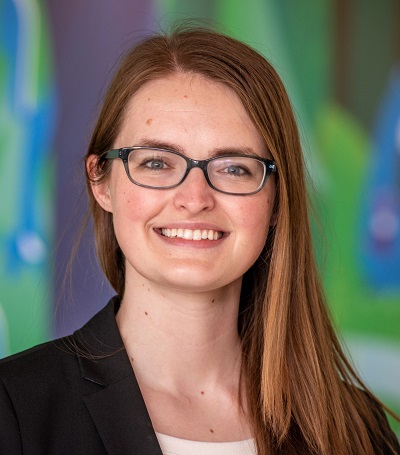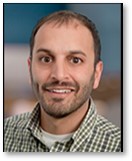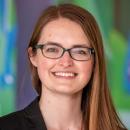
Mission
The mission of the Child Abuse Pediatrics Fellowship Program at the University of Washington (UW) and Seattle Children's Hospital is to train pediatricians to become clinical, academic, educational and administrative leaders in the field of Child Abuse Pediatrics (CAP). The CAP fellowship educates physicians to evaluate, diagnose, manage and treat child abuse, neglect and all aspects of child maltreatment, collaborate with community partners, provide expertise in courts of law, and participate in multidisciplinary teams investigating and managing child abuse cases.
Program Overview
This ACGME-accredited 3-year fellowship in child abuse pediatrics is part of the Department of Pediatrics at the UW and Seattle Children’s Hospital, one of the top 10 children’s hospitals in the United States and the major pediatric referral center in our five-state region – Washington, Wyoming, Alaska, Montana and Idaho (WWAMI).
Fellows will evaluate patients when there is a concern for abuse: physical, sexual, medical, psychological, or neglect. Our fellows work with professionals in related fields including child protective services, law enforcement, forensic interviewers, and mental health treatment providers. The program is actively involved in weekly multidisciplinary team meetings, regional child abuse networks, child death review, and activities of the King County Medical Examiners office.
The extensive academic faculty at UW and Seattle Children's Hospital in both general pediatrics and pediatric sub-specialties provides comprehensive clinical educational and research opportunities. In addition, the program provides a strong didactic curriculum and weekly teaching and case conferences. In addition to education in research methods and mentoring in research, fellows have the option of obtaining a Master of Science or Master of Public Health degree from UW, funded by the program.
Training at the University of Washington
Seattle provides a vibrant, urban environment. The surrounding area offers plenty of opportunities for outdoor sports and recreation including hiking, skiing, sailing, biking and camping.
Each year, approximately 1,500 residents and fellows conduct their 118 ACGME and 70+ non-ACGME accredited training programs across UW’s training sites throughout the 5-state Washington, Wyoming, Alaska, Montana and Idaho (WWAMI) region.
For more information, visit the Prospective Residents and Fellows page and Experience Washington.
Overview
A unique feature of our curriculum is that unlike residency, where there are specified blocks of time working in certain areas (e.g., on-call months, research months, elective months), the CAP fellow experience at Seattle Children’s resembles the daily life of a CAP throughout all three years. Fellows are integrated into the call schedule, spending 1-1.5 days per week and 1 weekend per month on call with an attending as backup/supervision. One day per week is spent seeing patients at the sexual assault clinic, Harborview Abuse and Trauma Center (HATC). The remainder of days, fellows participate in longitudinal case management and meetings with the team as well as research and educational endeavors. Approximately one-third (12 months) of fellowship is intended for use in scholarly work. That time can be spread throughout the three years at the discretion of the fellow.
Excellent mentorship is available within the CAP team for pursuing research endeavors. In addition, fellows have a great deal of autonomy in regards to elective time; they are able to choose how much, when, and where to spend elective time. Examples include, but are not limited to, dermatology, ophthalmology, neurosurgery, burns, metabolic bone clinic, genetics, and foster care clinic.
Fellow Teaching Opportunities and Responsibilities
Each fellow is expected to lead approximately two journal clubs per year and deliver at least one presentation on a topic of their choice to residents completing monthly CAP electives. In addition, teaching opportunities include but are not limited to: delivering presentations to groups of nurses, medical students, residents, and multi-subspecialty fellows, presenting cases at Northwest Maltreatment Peer Review, delivering lectures at regional and national conferences, and delivering lectures to community partners such as CPS and law enforcement.
Fellow Learning Opportunities
Learning opportunities include weekly Seattle Children’s CAP fellow didactics and journal clubs, weekly Radiology Rounds, weekly multi-disciplinary case conferences with CPS and law enforcement, weekly CAP ECHO didactic webinar series, twice-monthly Safe and Healthy Families educational webinar series, additional webinar learning opportunities from across the nation, and weekly literature alerts. Fellows will have the opportunity to complete a master’s degree through the University of Washington during fellowship.
Other Opportunities
Fellows graduating from our program are well prepared to become leaders in Child Abuse Pediatrics in children’s hospitals, academic institutions, government and community programs.
- Length of fellowship: 3 years
- Number of fellowships available: 3
- Application deadline: August 31, 2025
- Program start date: July 2026
- Board certification eligibility: Upon successful completion of the program, the fellow will have met the training requirements for Child Abuse certification by the American Board of Pediatrics.
Please download our program flyer (PDF).
Interview Process
All interviews will be conducted online for the 2025 interview season.
Application Requirements
- The Child Abuse Pediatrics Fellowship accepts individuals who have completed residencies and are board eligible in Pediatrics.
- Due to funding constraints, we are only able to accept individuals who have US citizenship or permanent resident status. We are not able to have candidates with J-1 or other visas.
- Applicants should submit:
- a completed application
- a personal statement describing their interest in child abuse pediatrics including potential areas of research focus
- a copy of their CV
- a medical school transcript, and
- 3 letters of recommendation.
- Applications are accepted through the Electronic Residency Application Service (ERAS).
- Please submit at minimum your personal statement, 3 letters of recommendation, and your board scores through ERAS.
We are happy to talk with interested applicants to provide more information about our program at any time and encourage applicants to email or set up a phone interview with the fellowship director early in the process.
Application Information
For information on how to apply to the Child Abuse Pediatrics fellowship program, please call the Fellowship Program Administrator at 206-987-2194 or email scan@seattlechildrens.org.
Seattle Children's Hospital

Seattle Children's Hospital is both a community hospital for greater Seattle and the pediatric referral center for the Northwest providing excellent pediatric care to meet the medical, surgical and developmental needs of children in the WWAMI region (Washington, Wyoming, Alaska, Montana, and Idaho). Serving as the main clinical training site for pediatric residents, this 423-bed hospital is conveniently located 1.5 miles from the University of Washington campus in a residential neighborhood of Seattle. The staff consists of University faculty and Seattle Children's full-time physicians.
Additional Information
Harborview Medical Center

Harborview Medical Center (HMC) is one of the nations leading academic medical centers and the only Level I adult and pediatric trauma center serving Washington, Alaska, Montana and Idaho. Harborview Medical Center cares for potential neurosurgical cases of abusive head trauma, all serious burns and trauma and adult and child victims of sexual assault. The medical center is owned by King County and managed by the University of Washington. Harborview has a specific mission to care for the community's most vulnerable patients. Fellows see consults at HMC in the PICU, burn unit, ED and pediatric unit.
Fellowship Leadership
Alumni
 | Emily Georges, MD
|
 | Ajay Koti, MD
|
 | Caitlin Crumm, MD |
 | James Metz, MD Pediatric Hospitalist, head of the Child Protection Team at the University of Vermont Children’s Hospital and an assistant professor at the Larner College of Medicine at UVM. |
 | Emily Brown, MD, MS Assistant Professor of Pediatrics and Child Abuse. Assistant Fellowship Director at the University of Washington School of Medicine. Child Abuse Physician with Seattle Children’s Hospital. |
 | Katie Johnson, MD Child Abuse Pediatrician at the Mayo Clinic Center for Safe and Healthy Children and Adolescents, Rochester MN |
 | Adrienne Schlatter, DO Consulting physician at Miller Children’s & Women’s Hospital, Long Beach, CA |

Sydney Anderson
Program Coordinator III
Seattle Children's Hospital
Safe Child & Adolescent Network (SCAN)
PO Box 5371
M/S: CSB-250
Seattle, WA 98145-5005
